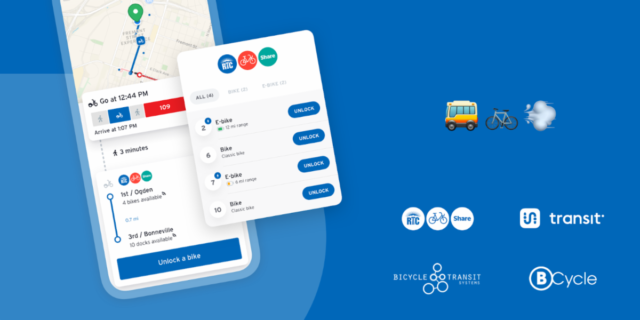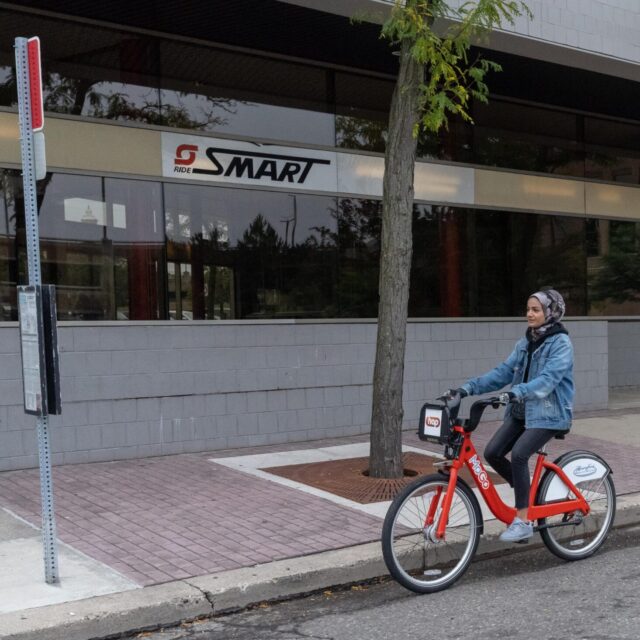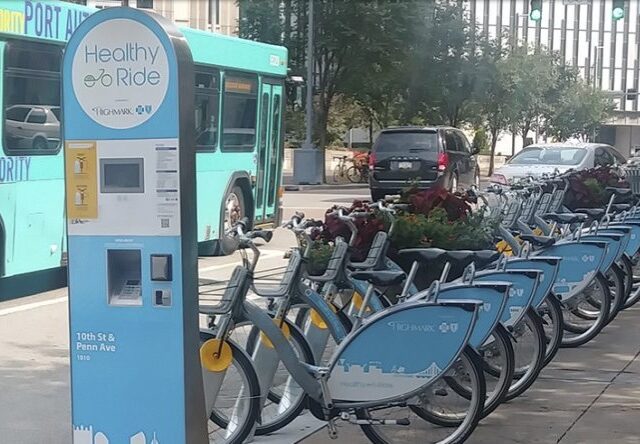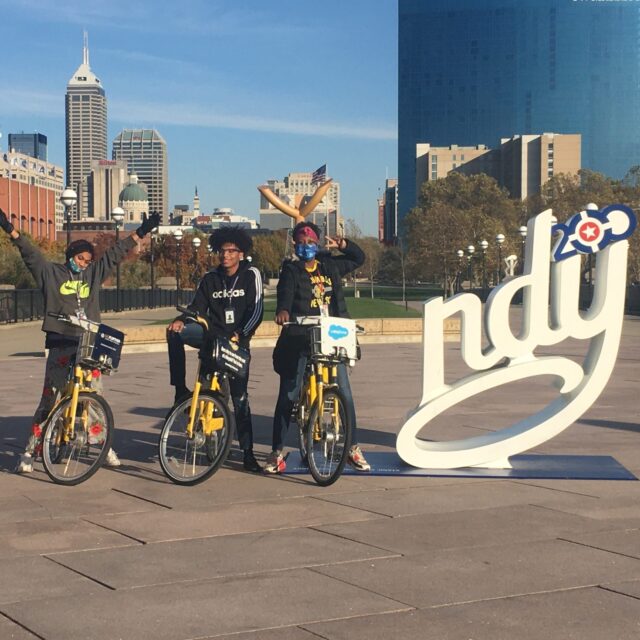Las Vegas Fully Integrates Bike Share and Transit
by Kiran Herbert, Communications Manager
May 7, 2021
Last week, a collaboration between Southern Nevada’s transportation agency, Bicycle Transit Systems, BCycle and Transit app went live.

When it comes to making bike and scooter share more equitable, there’s an increasing focus on ensuring transit and micromobility work in concert with one another. When placed intentionally, scooter and bike share stations can serve as last mile solutions for folks that live just outside the reach of transit hubs. The problem is though, transit agencies and micromobility operators aren’t often housed under the same organization, making conversation—let alone collaboration—difficult.
In Las Vegas, however, the Regional Transportation Commission of Southern Nevada (RTC) manages both bike share and transit (transit agencies in Los Angeles, Kansas City and Austin also oversee bike share). Last week, the City of Lights became the first to fully integrate both within the Transit app. Now, Las Vegas riders can purchase transit and bike share passes with a single Transit app account, seamlessly transitioning from a bus ride to unlocking a bike.
“Providing this additional multimodal option is just another way we are meeting our community’s evolving transportation needs,” says MJ Maynard, RTC chief executive officer. Since one in five RTC riders were already Transit app users, buying their bus tickets through the app, partnering with the company was a natural fit. Also integral to the collaboration was Masabi, the company that powers mobile ticketing for RTC, Bicycle Transit Systems, which operates Las Vegas’ bike share system and BCycle, which provides the bicycle hardware and technology.
Katie Monroe, a Better Bike Share Partnership alumna and current partnership liaison at Transit app, has dedicated her career to removing mobility barriers, particularly for traditionally underserved communities. “When we think of who’s still riding transit during the pandemic, those riders are disproportionately low-income essential workers,” says Monroe. “We really see our role as making sure they’re able to learn about the opportunity presented by bike share and make it easy to fit into their commute.”
Even in the before times, folks who were lower-income, Black, Hispanic or immigrants were more likely to use public transit on a regular basis. Although the integration in Las Vegas still requires users to be banked and have a smartphone, allowing people to pay for both a bus ticket and bike share in one app removes a major barrier to entry. And thanks to grant funding from the Southern Nevada Health District, RTC has its own equity program for bike share, with half-price monthly and annual prices available to Electronic Benefit Transfer (EBT) cardholders.
Down the road, Transit app wants to incorporate ways users can pay by cash, as well as fare capping, the process of not charging more once a user hits a certain threshold, such as the discounted cost of a weekly, monthly or annual pass (both features are currently live in select markets).
“There are so many different components that affect equity,” says Monroe, naming the placement of stations as one example. “But making sure that the information gets into the hands of bus riders, I think that’s one important piece.”
There’s been a lot of talk lately about the potential of MaaS, or the integration of various forms of transport options into a single mobility service accessible on demand. By allowing riders to pay for multiple modes of transportation in one app, Las Vegas is already taking a step in that direction. And according to Monroe, bike share operators and transit agencies that want to integrate shouldn’t let differences in management hold them back from doing so.
“Although it certainly helps move things along, the transit agency doesn’t have to own every piece of the puzzle for it to integrate,” says Monroe. “In Montreal, bike share is run separately from transit but within the Transit app, you can still unlock and pay for bikes as well as purchase bus fare.”
In Detroit, where MoGo, Detroit’s bike share system, is working to integrate bike share into transit as part of a two-year Living Lab, the Transit app has also been integral. Through a partnership with the Detroit Department of Transportation and SMART, Southeast Michigan’s regional public transportation provider, MoGo hopes to address the technical, behavioral and structural barriers associated with bus, streetcar and bike share trips.
“Transit agencies are increasingly seeing themselves as mobility managers and collaborating with city governments and other local transportation entities,” says Monroe. “It’s no longer just about operating buses and trains—it’s about getting people from point A to point B in a holistic way.”
Interested in integrating bike share and transit? Check out our two-page resource on the topic.
The Better Bike Share Partnership is funded by The JPB Foundation as a collaborative between the City of Philadelphia, theNational Association of City Transportation Officials (NACTO) and the PeopleForBikes Foundation to build equitable and replicable bike share systems. Follow us on Facebook, Twitter and Instagram or sign up for our weekly newsletter. Got a question or a story idea? Email kiran@peopleforbikes.org.



